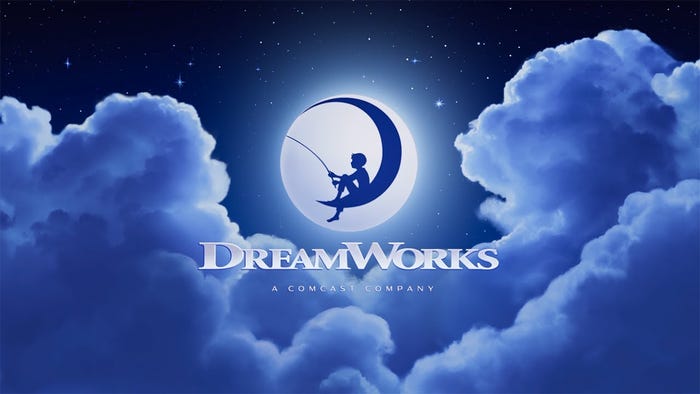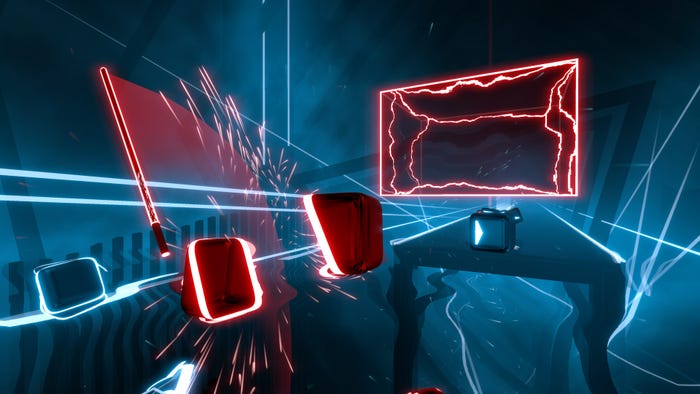
Featured Blog | This community-written post highlights the best of what the game industry has to offer. Read more like it on the Game Developer Blogs.
Play, Don't Show
In this streamlined version of a talk I gave about a year ago, let's discuss how games can use interactivity to create strong emotional bonds with the players.

[VIDEO TRANSCRIPT]
This video is supported by Patreon.
www.patreon.com/farlands
Every medium has unique ways in which they can create deep emotional connections and bonds with people experiencing them. In video games, that is the interactivity aspect.
After all, interactivity is not just about feedback. ‘Oh, I press X and something happens on screen’. Interactivity allows to build emotional connections in a way only video games can. This doesn’t mean of course that games are better than other mediums, but like everything else, they have some tools that only they can use.
Usually game developers tend to get to this realization somehow on their own, through experience, but I think this should be widespread knowledge. Not everybody should act on it, but everybody should know about it. Other mediums try to teach similar principles by creating guidelines.
If you go to any school related to creative writing, movie making, or even game design, you will most likely be taught the ‘Show, Don’t Tell’ principle, based on apocryphal quote by Anton Chekhov.
“Don’t tell me the moon is shining, show me the glint of light on broken glass.” - Anton Chekhov
Its point is that indirect communication is more efficient at making people empathize with what’s happening on page or on screen, than direct statements. For example in a book, you wouldn’t say “John is shy”, you would write about his feelings. In a movie, you wouldn’t have a character say “Oh John, you’re so shy”, you would show him feeling insecure and riling himself up before approaching to talk to somebody.
Of course, as any guideline, this is not a 100% do-this-all-the-time rule. But it helps to provide a direction - what to do to make people care. All the best books and movies use this guideline one way or another. And in video games we have learned very well to apply this principle to cutscenes, dialogues, visual narrative, but it’s not really applicable to gameplay that well. That’s because there are fundamental differences in how we experience emotions in active and passive states.
In a passive state, when we read a book or watch a movie, we experience emotions through Empathy. You put yourself into another person’s shoes to understand how they feel, what are they thinking about and going through. This is how movies make us care, make us laugh, make us cry, all that sort of stuff.
But when you introduce agency, when you add video game mechanics to interact with through an input method, it’s no longer about empathy. You are transferring yourself to the other side of the screen. So this becomes essentially a Projection. You don’t just put yourself into another person’s shoes, you ARE the other person.
We need a guideline for this particular way to connect emotionally, which I cheekily call “Play, Don’t Show”.
The point is - just like with “Show, Don’t Tell”, indirect communication via the use of game mechanics and control inputs can be more efficient than a passive experience at creating emotions and feelings.
As an example, I’m going to talk about Brothers: A Tale of Two Sons, which I’m going to absolutely spoil if you haven’t played it. So Brothers is a story about, well, two brothers, who travel to the Tree of Life to find cure for their dying father.
The interesting thing about this game mechanically is that you control both Brothers at the same time with a single controller. The left half corresponds to the older brother Naia, and the right half - to the younger brother, Naiee. Both of them have unique interactions, but the most important difference relates to swimming.
The younger brother, Naiee, is deathly afraid of water, due to traumatizing events in the past. So to swim you have to hold the Right Trigger button, this is important, to hold on to the older brother as he swims.
You go through the game learning to control both brothers efficiently at the same time, working as a team, going through all the obstacles and challenges on the way, until at one point - the older brother gets mortally wounded and eventually dies. And as you control Naiee trying to desperately save him and then later bury him, you feel the loss not just because that happened on screen, but because the way you interact with the game itself has changed.
For the past two and a half hours you’ve been using both your thumbs and fingers, learning to control both brothers efficiently, and now you just don’t need the left controller side anymore, you can go through the rest of the game one-handed. And this provides this subtle feeling of loss that wouldn’t be possible otherwise.
But this is not the greatest thing about Brothers. The greatest things comes later, when Naiee meets a last stretch of challenges before getting back home. The first one of them is water which he has to swim through. Naia is dead so there’s nobody to hold on to. And Naiee is still too afraid to go in. People usually get stuck for a little bit at this moment as they figure out what to do. And when they do figure out, something magical happens - and I’m going to show what on the example of some edited footage from a stream by Day9.
[time-stamped at 5:19]
That was the spiritual voice of Naia guiding the boy as you’re holding the older brother’s interact button. And look at Day9’s emotions there.
[Day9 video]
Notice how he said ‘My dead brother’s’, that’s projection at work there.
[Day9 video]
And you know, it would have been so easy to do this through a cutscene or a scripted event. Just have the spirit of the older brother appear, say something inspirational to Naiee, and now he would be able to swim. And honestly, that would have been fine. But it wouldn’t have been as powerful as what the game has now.
As a counterpoint to Brothers, I’m going to talk about BioShock for a bit, which I’m also going to totally spoil now. In BioShock there’s a twist - everything that you do in the game is actually you being mind controlled through the phrase ‘Would you kindly’. And you learn this when you get to the antagonist Andrew Ryan, as you are “kindly” sent to kill him. That moment when this information is revealed, culminates in this scene.
[time-stamped at 7:57]
Now, this all looks pretty powerful, and it’s set up in a very good way. But my problem with this particular scene is that we have a game the whole point of which is to explore the notions of player agency, the futility of player choice, how our actions don’t even matter. And in the most important scene about player agency, the game just takes that agency away from us and shows it as a cutscene where you don’t press a single button.
I’ve talked about this online with several people, and an argument I hear is that if you would add player interaction, things would be less cinematic as players would try to do something else. But that’s exactly what you need in such a scene! Why would a player try to do something that breaks the game and not follow the script? Because they wouldn’t want to feel like a slave, like they have to do what the game tells them to, until eventually, if they want to actually complete it, they would have to succumb to its wishes and press the hit button again, and again, and again, until Andrew Ryan is dead.
As a cutscene, this scene shows the point but it’s not as powerful as it could’ve been with that added bit of interaction. And as it stands now in the game, the moment near the beginning where you’re kindly asked to pick a crowbar or something is a better examination of BioShock’s themes regarding player choice than the most important scene in the game. Technically you can ignore the request, but you wouldn’t be able to go much further, so you need to pick up the wrench anyway.
And I’m not trying to say that cutscenes are bad. As everything else, cutscenes are a tool. I love cutscenes, I love video games like Uncharted that have a lot of them, and one of my most favorite video games of all time is Telltale’s The Walking Dead which, if you boil it down, is pretty much mostly cutscenes.
But The Walking Dead makes sure to add moments of interaction at the right times to give a powerful punch to its moments. And I’m not going to spoil the whole game, but I will spoil one particular subplot.
At one point in The Walking Dead, Duck, son of your friend, gets bitten by a zombie and is about to die. Well, you know what has to be done to people who are dying and are about to get transformed into zombies - you need to shoot them in the head.
And there’s a choice, if you allow Kenny, the father, to do it, or if you do it yourself as Lee, the main character. Now, most people actually chose to do it themselves, and what follows after is not a cutscene of Lee shooting the boy. You actually, like you would in an action sequence, have to target the gun, aim it at the boy’s head and then press a button to shoot.
It’s a five second interaction, really, but it makes all the difference. If it would be a cutscene, we would feel bad because it’s a sad moment and we understand what Lee and Kenny are going through. But when you add this interaction, you’re dealing not with empathy, but with projection. It’s not just Lee who has to do this hard thing, YOU actually have to point a gun at a child’s head and shoot.
And even though this is a video game, that thought is in your head now, and that is very powerful. Some players actually couldn’t go through with this, in which case if they hesitate long enough they would get a scene showing you and Kenny walking away.
I’ve talked a lot right now about narrative-based games that are played with a controller, but really this principle can apply to all genres and input methods, from touch screens to peripherals to that wonderful monstrosity from Steel Battalion.
Because it all boils down to a question that you need to ask yourself early during development: “What do you want to talk about?” What are the topics that you want to examine? The themes that you want to explore?
I can talk a lot now about things like how mechanics influence perception, how a set of mechanics that creates player stories can be just as powerful as a pre-written narrative, how abstract mechanics can explore themes in a meaningful way. But all that will not matter if you don’t have anything to say, if when playing the game, players don’t have anything to dig for to build that strong emotional bond.
Players don’t have to interpret everything the way you want them to, as interpretation is subjective, but if there’s nothing behind your mechanics and visuals then they’re not going to find anything. So what do you want to talk about?
Do you want to talk about Trust, like Brothers, which explores the notion of trust in its main mechanics between the two brothers, as well as with strangers who help along the way but also one of them leads to the older brother’s death?
Do you want to talk about player agency, like BioShock? Even though I have criticized BioShock just a little while ago due to how it implemented its main twist scene, the game is cohesive enough and it resonated with people because there was something the developers wanted to talk about.
Do you want to talk about hope and redemption through Lee’s relationship with Clementine?
If you have a topic that you want to discuss, you will be able to build that emotional connection. The problem is that in games we usually start with an abstract concept of a mechanic around which we build everything else. Gameplay comes first, after all.
And a lot of times what happens is that we try to imbue meaning very late in development, which doesn’t really work. So ultimately, games can be fun but pretty shallow. But if you start asking yourself early enough, doesn’t have to be precisely at the beginning, what is it that you want to talk about, and then start holistically building your game around that - mechanics, narrative, visual style, music, everything with that in mind, then in the end you’ll get a beautiful, immersive, resonating experience that will stay with people for a very long time.
Thank you all for watching. What are your most powerful gaming moments that you have experienced? I would be very interested to hear about those in the comments below!
Thank you all for reading. A special thank you goes to my Patreon supporters. If you'd like, feel free to support my campaign at www.patreon.com/farlands
Farlands has a Discord server focused on gathering people interesting in talking about games and game design. Feel free to join!
Read more about:
Featured BlogsAbout the Author(s)
You May Also Like













